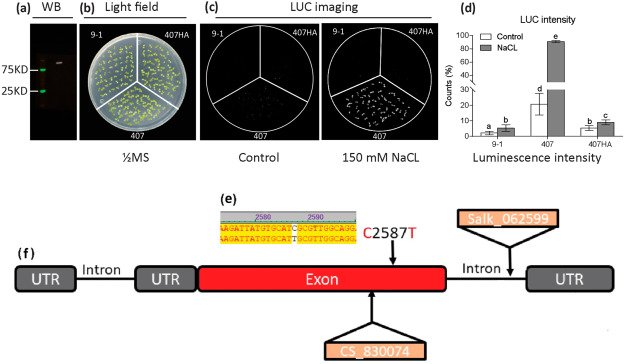Author: Za Khai Tuang, Tial C. Ling;
The adaptation process is a way of life for plants, and they must contend with biotic and abiotic stresses for their chance of survival. These stresses can lead to disastrous crop production and limited distribution of crops geographically. The use of chemicals to address those stresses in agriculture is limited, while management strategies often fail to meet the needs of the industry. Therefore, novel techniques are needed to control plant diseases and to maintain food security. RCF1 has been found to encode an RNA helicase containing DEAD-box domains and loss-of-function mutation of this gene increases the sensitivity of plants to cold stress. In this study, a single mutant generated in RCF1 was used to investigate the function of the RCF1 gene in pathogen infection stress (i.e., Pst DC3000 and B. cinerea). RFC1 was found to confer resistance to Pseudomonas syringae pv. tomato DC3000 (Pst DC3000) but negatively affect Botrytis cinerea (B. cinerea) infection by repressing SNI1 pathways and JA signaling while activating SA pathways and its receptor NPR1. The generated rcf1 allelic mutant (name: 407) showed sensitivities to bacteria pathogen (Pst DC3000) but tolerance to fungus infection (B. cinerea), and SNI1 was highly upregulated in it. Free and conjugated Salicylic Acid (SA) contents were much lower in the allelic mutant 407 than in complementary materials and is sensitive to Pst DC3000 infection, and NPR1 depending on SA biosynthetic genes were down-regulated in it. Our preliminary results reveal that RCF1 confers resistance to Pst DC3000 by SA and NPR1 dependence manner but blocks SNI1 and JA pathways.
Read the full article by clicking here.
